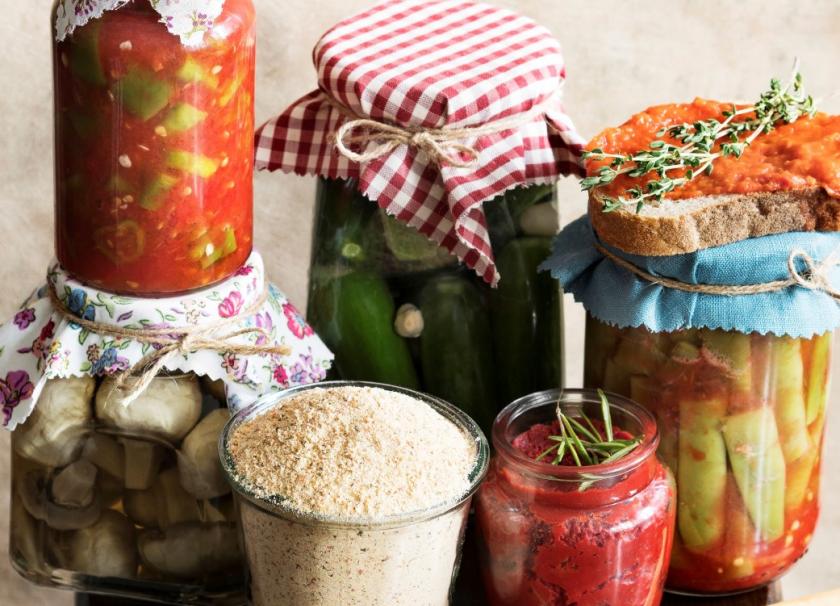
Tips to Stay Safe and Limit Waste
By Mahlea Rasmussen, Education Coordinator
Inspired by Bea Johnson's Zero Waste Home
We are in uncertain times and some of you may be second-guessing some of your zero waste practices and replacing them with safety measures for you and your family. I was proud not to have chemical cleaners in my home and never used plastic gloves - but now those products are being suggested for staying clean and safe. Here are some tips to keep your home safe while working towards more sustainability.
Switch to on-line banking and billing as common practice
Most companies have switched to online methods for billing and banking. Take advantage of these services to limit your contact with outside materials that could be contaminated.
Zero Waste Home, p. 176
You can also go to the following websites to stop some mail from cluttering up your mailbox and limit your contact with outside materials entering your home:
Stop direct mail
Stop credit card and insurance offers
Zero Waste Home, p. 173
Turn off the TV and digital media
In these times of isolation and quarantine, it is easy to turn on the TV and turn off life. Make sure you are taking time away from electronic distractions. Save a little energy and get creative. Take this chance to connect with your family or partner you find yourself quarantined with. A game night, hike or making dinner together are all activities that do not require a screen.
Zero Waste Home, p. 185
Repair it
For the time being, a lot of stores are closed and it is important to limit one's trips out of the home. This takes away the option of simply throwing a needed item away and replacing it. This is a good opportunity to see if you can fix it! If you don't know how to fix the item, there are tons of how-to videos on YouTube and ifixit.com for electronics.
Zero Waste Home, p. 23
Learn how to make it
Due to recent food shortages, and with all of us trying to limit our trips to the grocery store, it may be a more economical option to buy ingredients to make things, like bread. Here are a couple of links for homemade bread from my favorite bloggers, along with a recipe for flour tortillas from Zero Waste Home (p. 71).
Sourdough Tips for the Occasional User
No Knead Artisan Bread
Flour Tortillas
Ingredients
1 1/2 tsp salt
1 tsp baking powder
1/2 cup cold butter
1 cup warm water
Directions
- Combine dry ingredients in a large bowl.
- Incorporate the butter into the mixture and mix with your fingertips until it resembles coarse crumbles.
- Add the water and combine until soft dough forms.
- Separate into 12 small balls.
- Roll out each ball as thinly as possible and cook in a pan over medium heat for 20 seconds on each side.
Preserve It
To help make your trip to the grocery store a little more worthwhile and avoid waste, there are a few things you can do to preserve your perishables.
Dry it - if you are lucky enough to own a dehydrator this is the time to bust it out. Use it to make things like dried fruit, kale chips or jerky. You can also use your oven at a low setting. Check out food-hacks.wonderhowto.com to learn how, and for other great ideas.
Freeze it - Along with soups, broth and berries did you know you could freeze avocado and eggs? Respectfood.com has a list of 15 uncommon and surprising things you can freeze for later.
Refrigerator pickles - if canning intimidates you, try making small batches of pickles. You can also use this method of preserving for other vegetables. I like carrots, jalapeños, and cauliflower. Here is a simple recipe from www.simplyrecipes.com to get you started.
Ingredients
1 small sweet yellow onion
1 cup apple cider vinegar
1 cup water
1/4 cup granulated sugar
1 tablespoon kosher salt
1 1/2 teaspoons pickling spice, homemade or store-bought
- Wash and dry the jars and cucumbers: Wash 2 wide-mouth pint jars and their lids in hot, soapy water. Set them aside to dry.
- Rinse the cucumbers well under cold water, pat them dry, and then set them on a towel to dry completely.
- Slice the cucumbers and onion, then pack them in the jars: With a sharp knife or a mandoline slicer, slice the cucumbers and onion into slices 1/8- to 1/4-inch thick.
- Firmly pack the cucumbers and onions into the jars, fitting in as many as you can without smashing the vegetables. Leave 1/2-inch or so of headspace at the top of the jars.
- Make the brine: In a small saucepan over medium-high heat, bring the vinegar, water, sugar, salt, and pickling spice up to a simmer. Stir occasionally and continue simmering until the sugar and salt are dissolved.
- Pour the brine over the vegetables: If you have a canning funnel, use it here to make it easier to fill the jars. Carefully pour or ladle the hot brine into each jar, filling the jars until the cucumbers and onions are covered. It's ok if a few small pieces poke out the top.
- Cool and refrigerate for 24 hours: Screw on the lids, then let the jars cool to room temperature (about an hour). The cucumbers will start bright green but will become darker and more "pickle-colored" as they cool.
- Place them in the refrigerator. Wait at least 24 hours before eating the pickles to let the flavors develop. Use them within one month.
I hope this inspires you to continue on your sustainable journey and helps keep you and yours safe.
More Co-op News
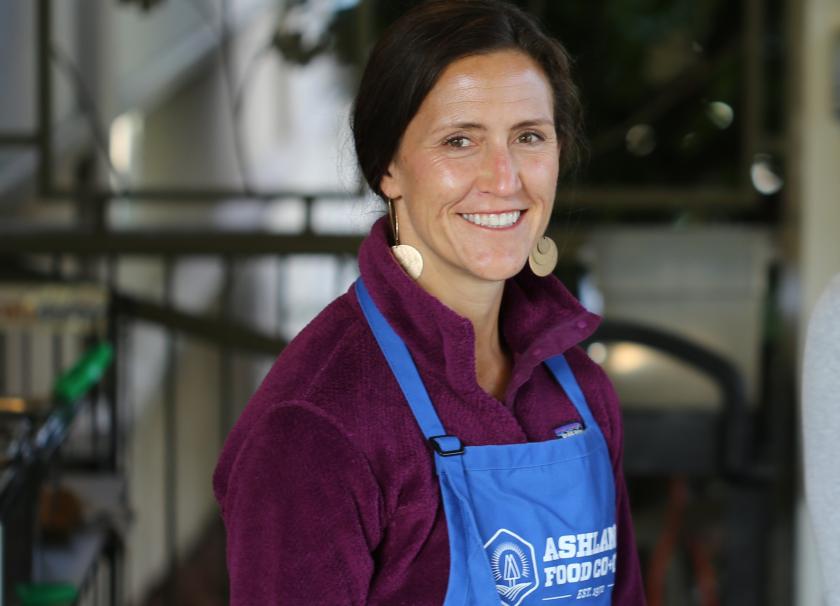
Lisa Beam: Why I'm a Board Member
Why serve on the Board of Directors at the Ashland Food Coop? This was the question that I was faced with about a year ago.
I have lived, worked and shopped in Ashland for the last 20 years. Many of those years I have actively participated on non-profit boards, civic organizations and committees. However, in the last few years I stepped away from those responsibilities to focus on family and business life.
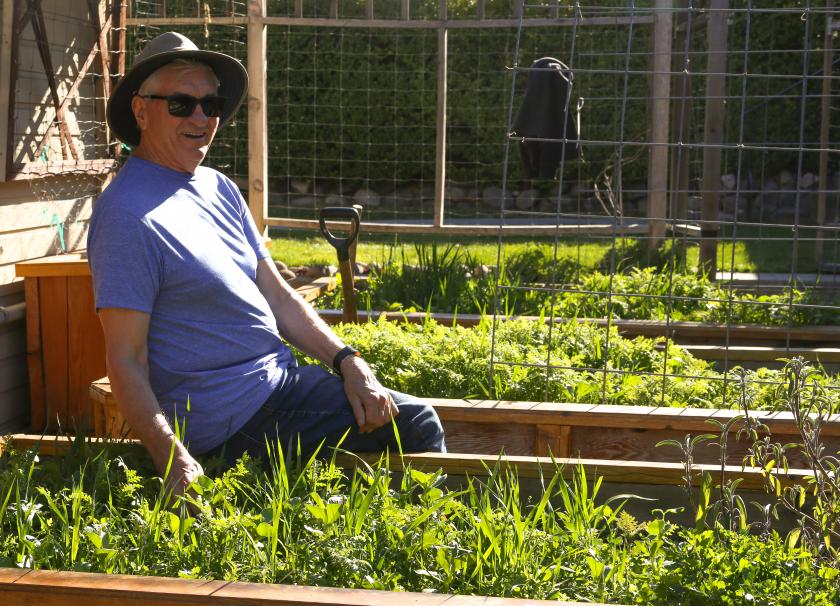
Henry in the Garden: The Pollinator Plan
By Henry Herting, Co-op garden volunteer
It's that fun time of the year when we get to plan our gardens. This year since our pollinators are taking such a hard hit, we are planning a pollinator garden.
Some plants that are considered good for pollinators are not so good fo the gardeners. They are invasive; they are weeds. Nobody likes weeds in their garden - who likes getting down on their knee pads and clawing at deep-rooted weeds growing in places where you don't want them?

Rogue To Go at the Co-op
We are excited to announce the official launch of Rogue To Go at the Ashland Food Co-op!
Rogue To Go is a reusable container pilot program. The pilot connects five participating restaurants by offering a reusable container that can be used for meals to-go and help eliminate single-use boxes. These O2GO containers are made locally in Bend, Oregon by OZZI. The bright green containers are 100% recyclable through a specialty recycler - truly zero waste!
How can you start using Rogue To Go? Check out the steps below and follow along with a walk-through video.
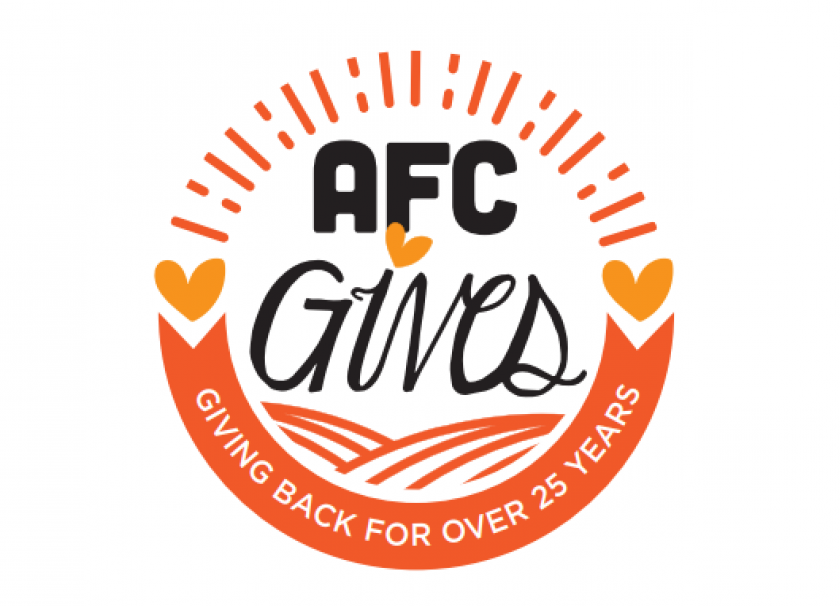
Apply for an AFC Gives community grant
For over 25 years, the Ashland Food Co-op has been re-investing in the local community by awarding grants to non-profit organizations doing important work in the Rogue Valley. Putting the seventh cooperative principle, "concern for community," into action, over $30,000 was donated in 2019 - and in 2020, there are even more opportunities for non-profits.
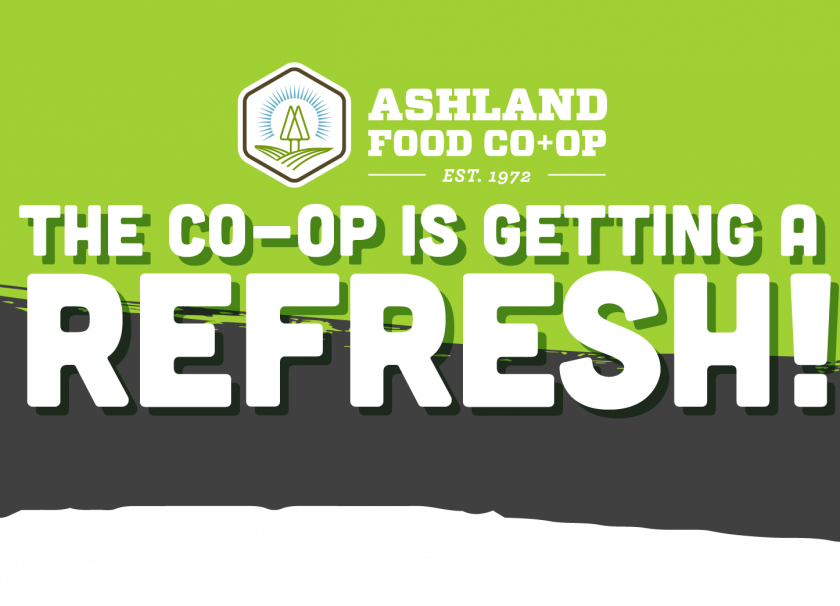
The Co-op is getting a refresh
We are giving our store a much-needed fresh coat of paint. We think you'll enjoy the changes!
When
The painting team will begin our project on February 5th, 2020 with a start time of 9pm.
Where
The entire retail store, deli serving area and interior seating area will receive a fresh new coat of paint.
Timeline
If all goes as planned, our painting project should be finished by February 20.
Will Store Hours Change?
No. We will be painting from 9pm to 5am.
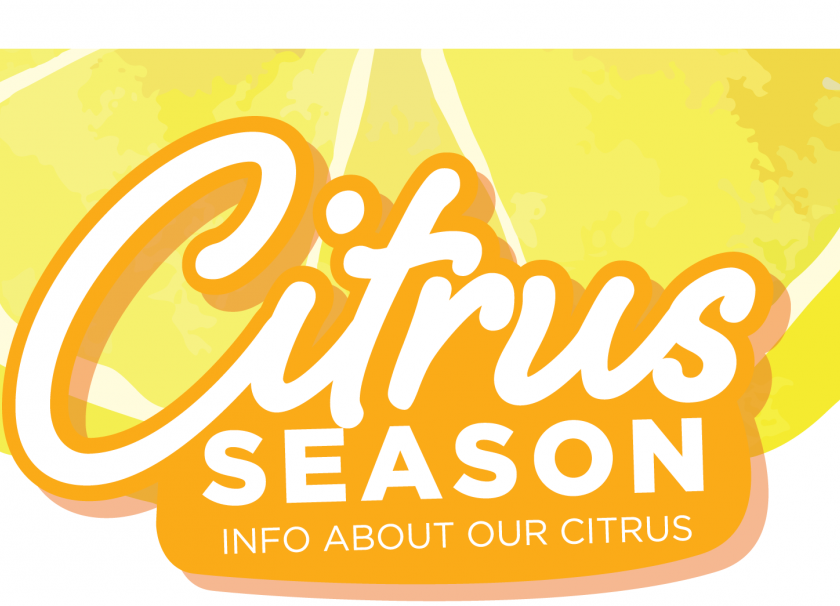
Explore citrus!
Looking to explore some new citrus varieties? Know more before you go! Check out the many types of sweet, sour and somewhere in between that you can enjoy at the Co-op! (Availability may vary due to seasonality.)
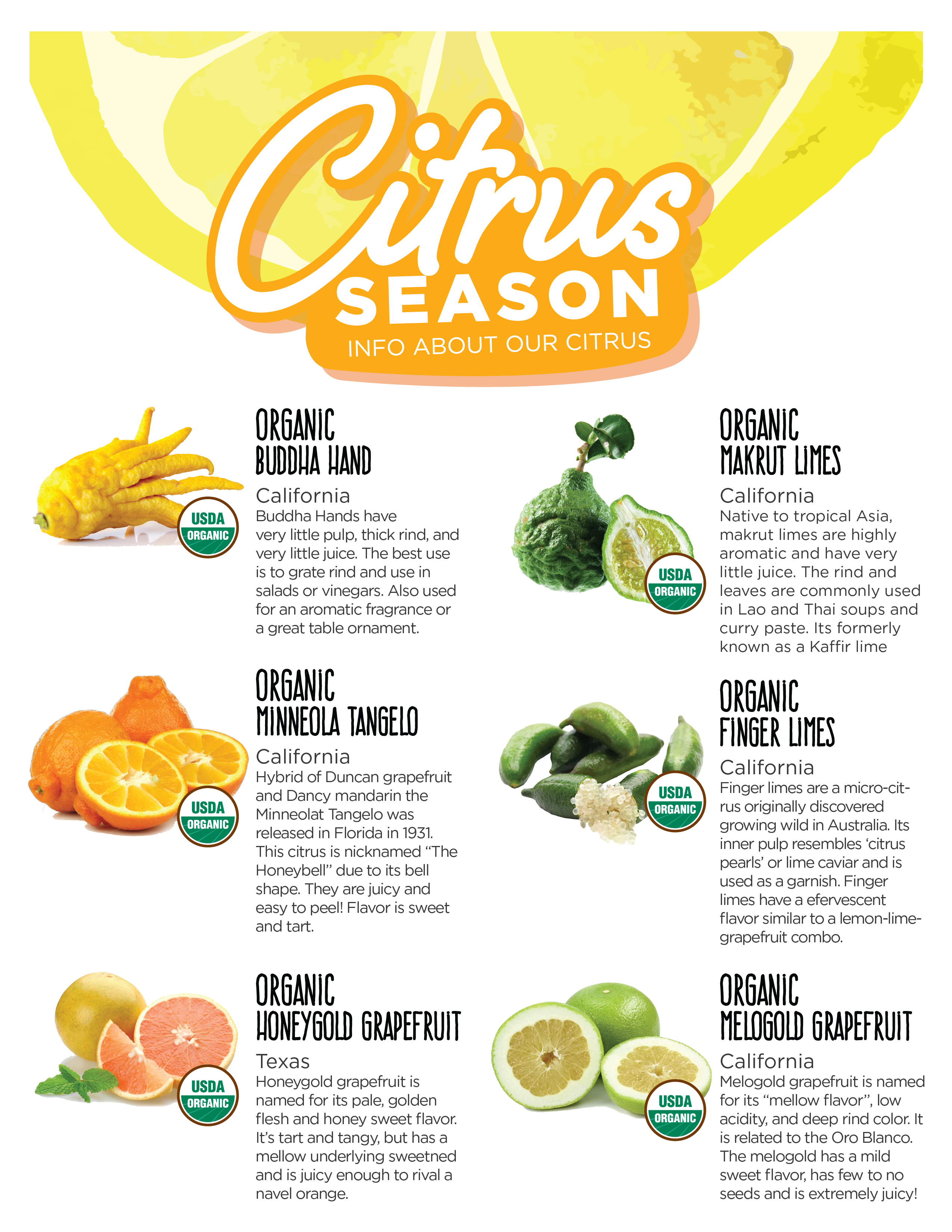
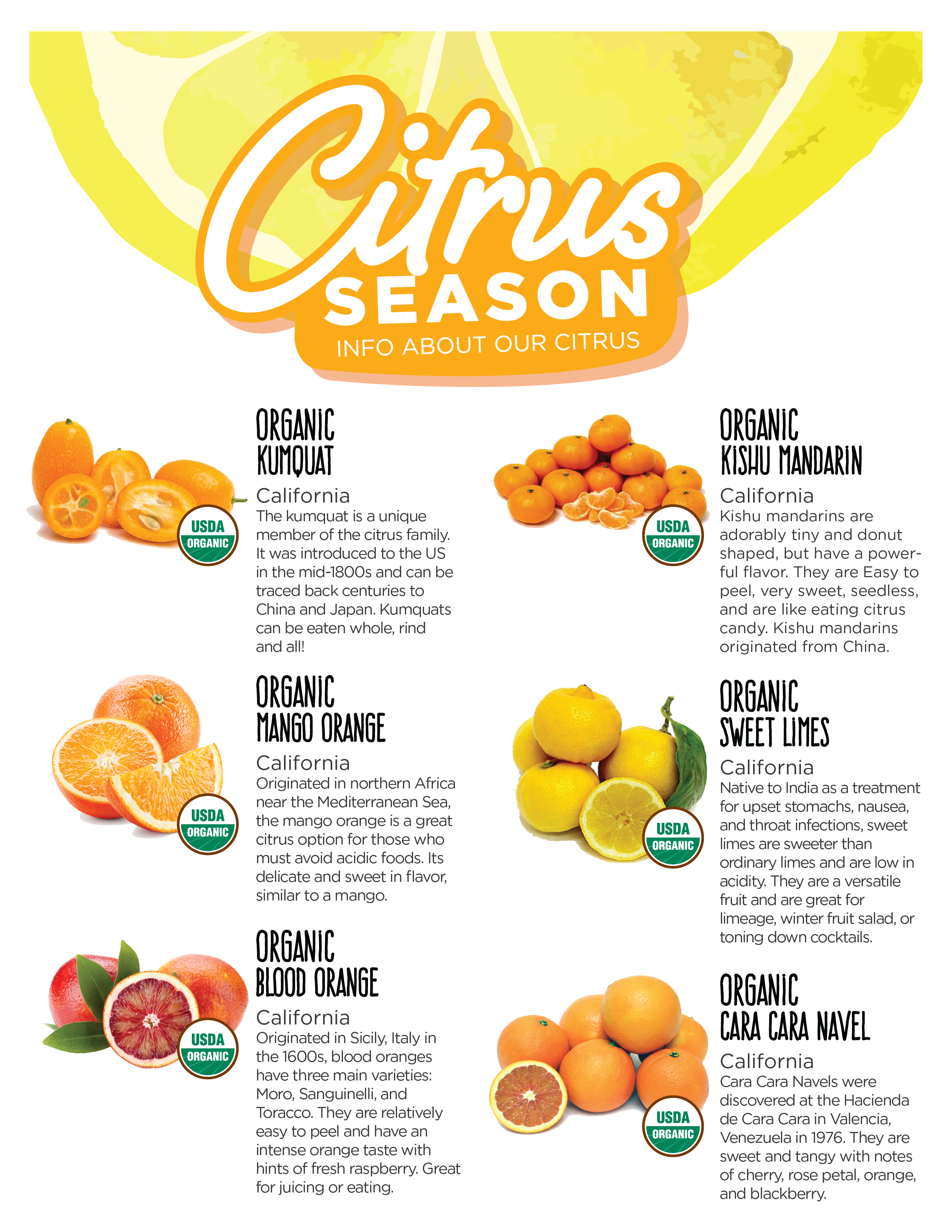
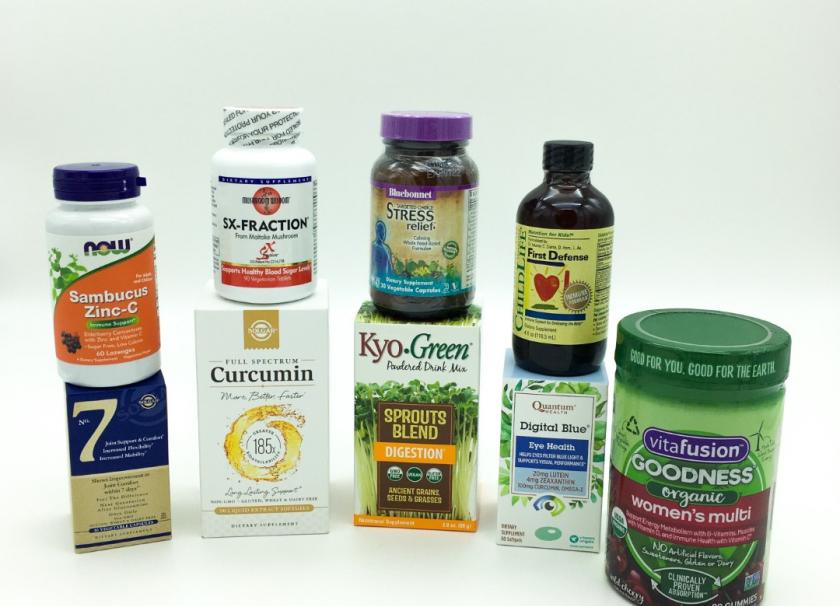
Taste for Life winter wellness giveaway
It's a month of giveaways from Taste for Life!
Giveaway #1 has finished up - so it's time for #2! This giveaway runs 1/27-2/2, so sign up below.
This package includes: NOW's Sabucus Zinc-C lozenges, Mushroom Wisdom's SX-Fraction, Bluebonnet's Stress Release formula, ChildLife's First Defense immune formula, Vitafusion's Organic Women's Multi vitamin, Quantum Health's Eye Health supplement, Kyo-Green Sprouts Blend digestion supplement, Solgar's full spectrum Curcumin supplement, and Solgar's No. 7 joint comfort supplement.

Rogue Co-ops College Scholarship
As part of the Rogue Co-ops, a group of Rogue Valley cooperative businesses that includes Ashland Food Co-op, Grange Co-op, Medford Food Co-op, and Rogue Credit Union, we're excited to offer a scholarship opportunity to local high school students planning on attending college.
The Rogue Co-ops have collectively funded a $2,000 scholarship (and Grange Co-op offers an additional eight $1,500 scholarships) for students (in public, private or home school settings) who meet the following requirements:

Become an Owner-Volunteer with the AFC Board
The AFC Board of Directors is looking for owner-volunteers for three board committees: the Owner Engagement Committee (OEC), Board Development Committee (BDC), and AFC Gives Committee.
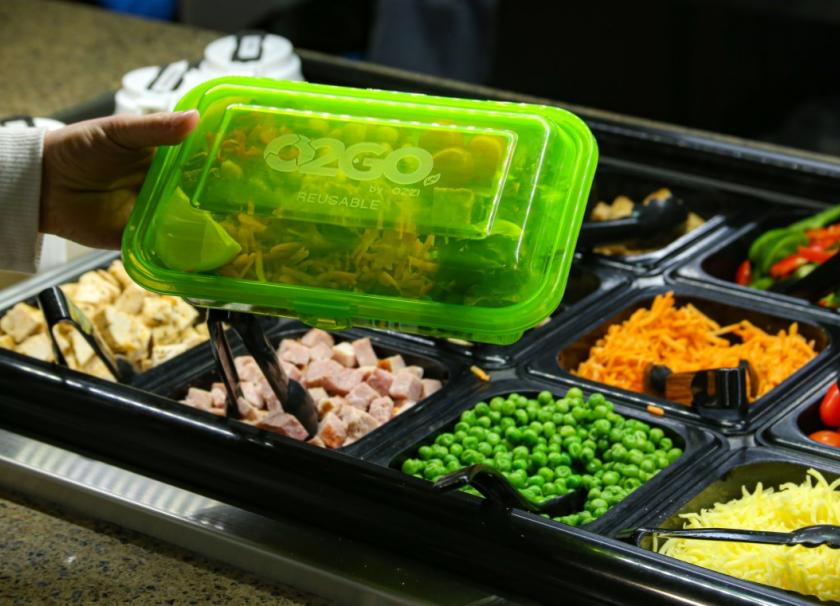
Sustainability Update: Building on a Strong Foundation
Sustainability Update
Our team has been working on many different projects throughout the year, taking great steps to fulfill our four sustainability goals. Our four goals to achieve by 2030 are: carbon neutrality, zero waste, eliminating toxic chemicals, and being a leader in our sustainable community. We look forward to our sustainable success in the upcoming decade!

2020: A vision for the future through Co-ops and local food
As the 2010s come to a close, the “20/20” eyesight analogy couldn’t be more appropriate for the new decade. With our eye on the future, there’s clearly a sense of urgency and awareness of the unique times we’re living in: a changing climate, increases in costs of living, and the shared pressures of a globalized world.
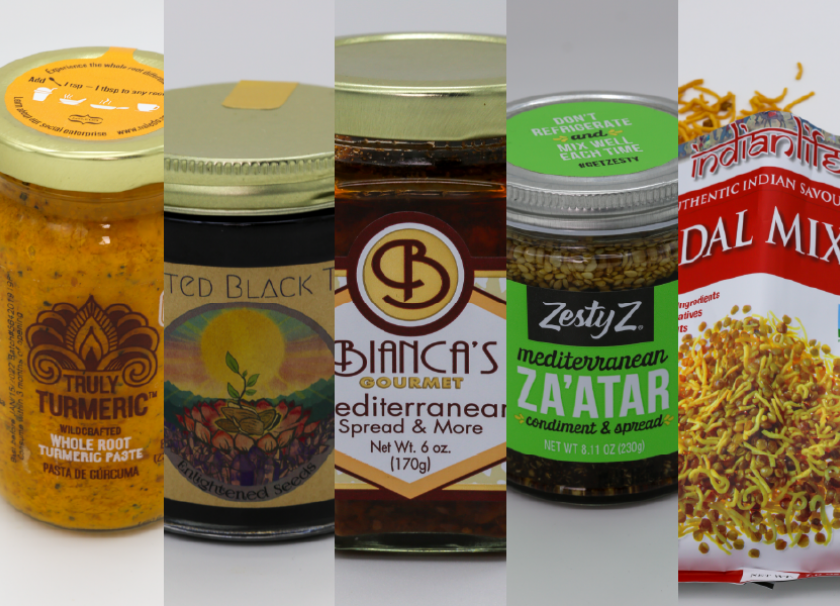
5 Items to Try: Spreads, Condiments & Snacks
It's fun trying new things! Here are five items you can find at the Co-op with a distinctly international flavor. Whether you're spreading them on some bread or naan, mixing up a salad dressing, or just want something salty and crunchy to snack on, try these out next time you want to elevate your dishes.
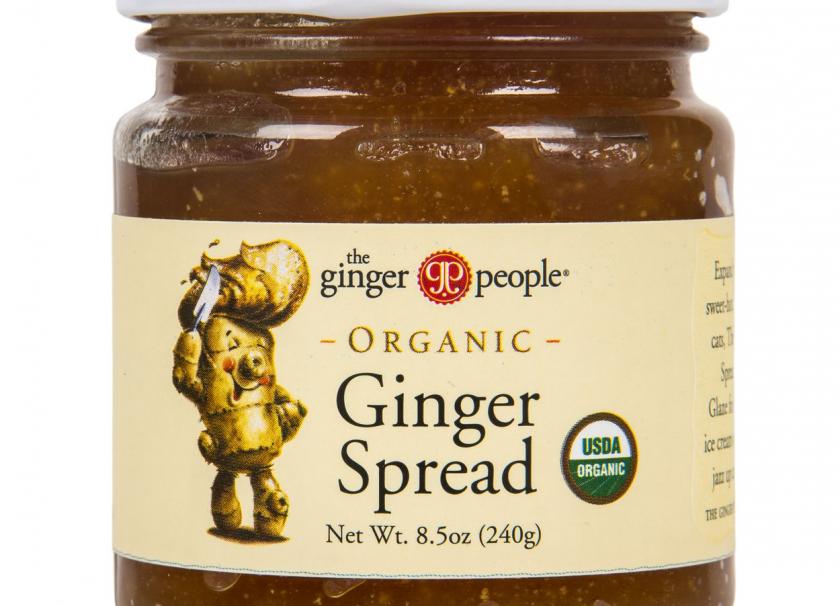
10 Ways to Enjoy: Ginger Spread
Sometimes you might come across a product at the Co-op and ask, "That looks good, but how in the heck can I use it in my cooking?" To answer that question, we picked this Ginger Spread made by The Ginger People (famous for their Gin-Gin candies). Grab a jar and try some of these unique applications in your own kitchen - or get inspired to utilize it in another way.

Meet Your Board: Melina Barker
Hello, Co-op members! My name is Melina Barker, and I joined the AFC Board of Directors this July. Since then, I have been busy learning about all the work the previous members have done to craft strategic goals to support the success of the AFC.
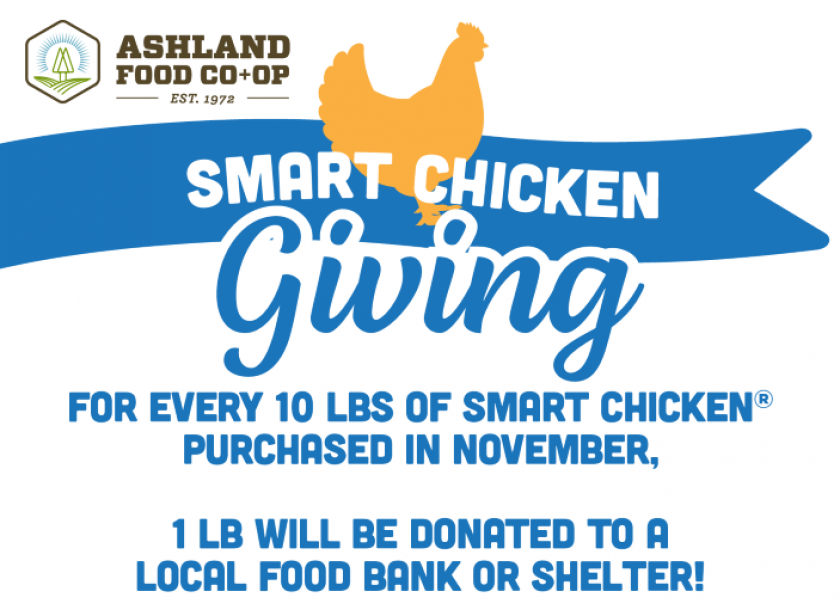
Smart Chicken® Holiday Giving in 2019
During the month of November, Co-op shoppers can nourish their own families and help fight hunger in the Rogue Valley.
Over the years, Smart Chicken® and Ashland Food Co-op have teamed up to donate thousands of pounds of chicken to ACCESS. Smart Chicken® will once again donate Smart Chicken® products based on the total volume that shoppers purchase at Ashland Food Co-op to ACCESS.
